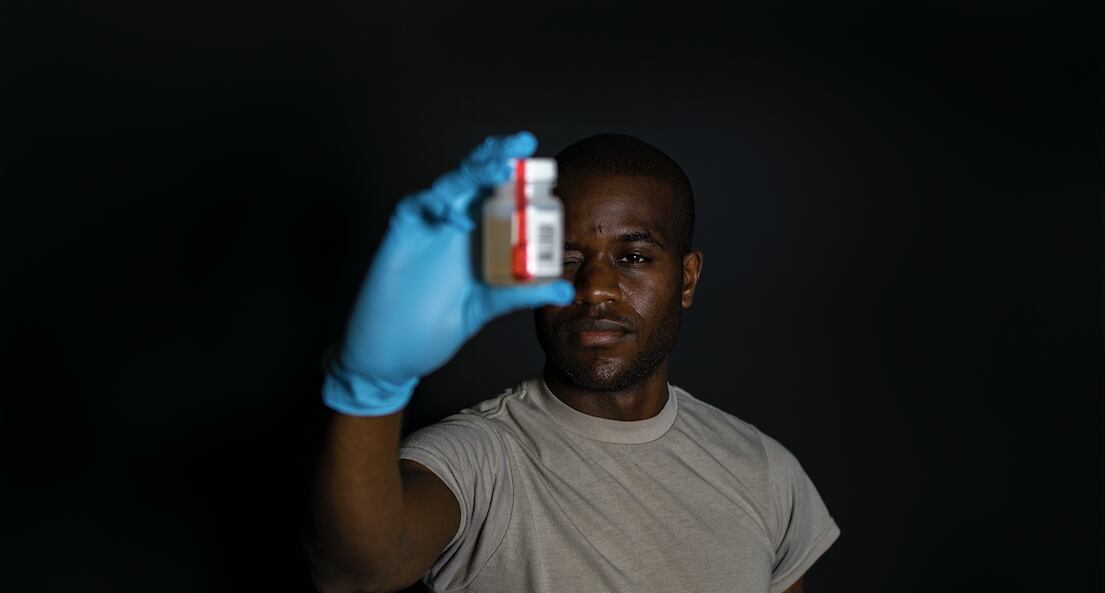NEW ORLEANS — Air Force Chief of Staff Gen. Dave Goldfein said he’d look into a complaint that Defense Department-wide drug testing is sapping valuable time from Guard units, but don’t hold your breath.
Goldfein said he would take it on as a “tasker,” but cautioned that it’s really outside the Air Force’s control. Still, he said, he sees value in periodically examining policies on things like drug tests when airmen come to him with complaints.
The query was prompted during a question-and-answer session at the 140th National Guard Association conference here this weekend.
An Air Force captain with the Utah National Guard told Goldfein his airmen were often spending drill weekends preoccupied with drug tests rather than training for their unit’s mission.
“If you came to drill weekend out in Utah, you’d see that a healthy percentage of airmen are involved in the drug testing program — either to administer it or to be randomly selected to participate in it,” said the captain, who identified himself as an intelligence officer. “Is the Air Force looking at reforming the drug testing program to reduce the burden it places on the squadron, which takes away from our focus on readiness?”
Goldfein — who has emphasized the importance of eliminating unnecessary additional duties and paperwork so troops can focus on their mission and readiness — said the Air Force hasn’t been looking at drug testing as a way to reduce unnecessary duties, but said it would be placed on his list.
“I haven’t looked at it yet through the lens of the burden on the squadron, but I would just say that it’s above an Air Force-level issue,” Goldfein said. “All the services have the same program. It’s a DoD-wide program that’s mandated in terms of how we administer it. It has congressional oversight. ... So we’re not looking at doing any stand-alone changes in the Air Force.”
“But I will take that on and see where we’re at in the squadrons. If there’s a better way to do it, I’m all ears," he added.
After the session, Goldfein told Air Force Times that while this policy hasn’t been something he was tracking before, it is one he’s taking seriously enough to give a deeper look.
“It’s always good for us to do a refresh on policies and procedures,” Goldfein said. "This one actually hasn’t been on my radar, but now that I have a question on it, I’m going to go back and take a look and say ‘where are we on this [and] are we doing it smartly?’
“I don’t know the last time we actually took a hard look at it,” he said, adding that the value in coming to conferences like this one in New Orleans is that he can get complaints fielded from those at the squadron-level, where the majority of the Air Force operates.
A hallmark of Goldfein’s tenure as chief has been his push for the Air Force to “revitalize the squadron."
Eliminating bureaucracy, such as overly specific Air Force Instructions, or streamlining existing processes, such as drug tests, may, to some observers, seem irrelevant in the context of future conflict, but not to Goldfein and his staff.
For them, it ultimately helps with the Air Force’s readiness by changing culture and helping squadron-level airmen operate more autonomously — a necessity in the fast-paced war of tomorrow.
Kyle Rempfer was an editor and reporter who has covered combat operations, criminal cases, foreign military assistance and training accidents. Before entering journalism, Kyle served in U.S. Air Force Special Tactics and deployed in 2014 to Paktika Province, Afghanistan, and Baghdad, Iraq.





